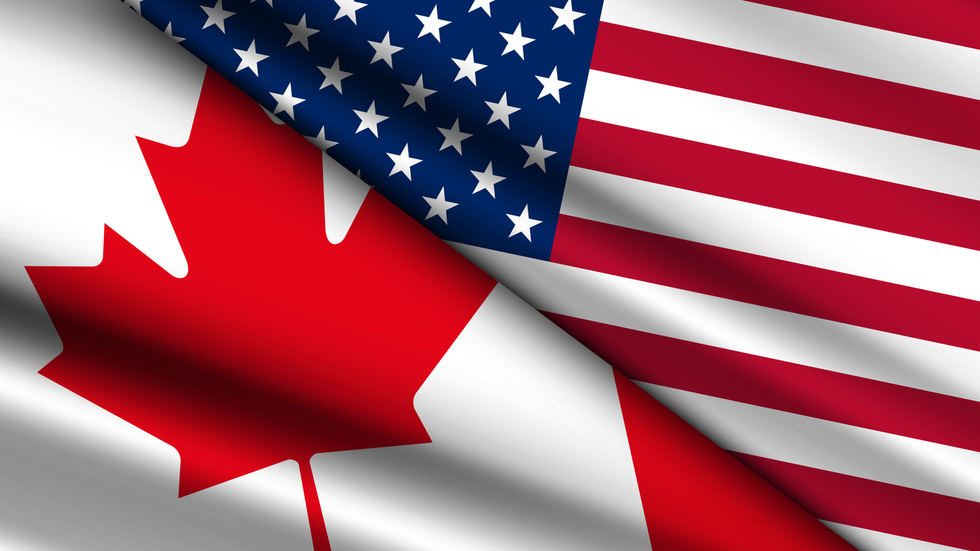Cross-Border Business Formation: An In-Depth Guide
In today’s globalized economy, establishing a business that spans international borders is a strategic move for many entrepreneurs. If you live outside the United States but sell goods or services to U.S. customers, understanding the legal and tax implications of cross-border business formation becomes essential. The importance of selecting the right business entity structure cannot be overstated, as it plays a critical role in avoiding double taxation and fostering trust with global clients and partners.
This comprehensive article from Legal Marketplace CONSULTANT explores the intricacies of cross-border business formation, providing valuable insights into compliance with U.S. laws, optimizing tax benefits, and strategic planning to bridge international borders legally and effectively.
Understanding Cross-Border Business Formation
Cross-border business formation refers to the process by which an individual or a company establishes a business entity in one country while operating or selling products and services in another. For sellers abroad targeting the U.S. market, this scenario is common and brings with it specific legal, tax, and regulatory considerations.
The primary objective when forming a cross-border business is to select an entity type that aligns with the entrepreneur’s commercial goals while ensuring compliance with all applicable domestic and international laws. Failure to comply with U.S. regulations can result in penalties, disrupted business operations, and potential reputational damage.
Key Considerations When Doing Business Across Borders
Several factors must be carefully evaluated before establishing a cross-border entity:
- Compliance with U.S. Tax Laws and Avoiding Double Taxation;
- Choosing the Appropriate Business Entity (LLC, Corporation, Branch Office, etc.);
- Understanding U.S. Federal and State Regulatory Frameworks;
- Evaluating the Impact of International Trade Agreements and Treaties;
- Building Trust with U.S. Customers via Legal Transparency and Entity Credibility.
Each of these considerations significantly influences the success and sustainability of the cross-border business endeavor.
Entity Structures Suitable for Cross-Border Companies
Choosing the correct legal structure is crucial. The following types of entities are commonly considered by foreign entrepreneurs selling to the U.S. market:
- Limited Liability Company (LLC): Offers flexibility, pass-through taxation, and limited liability protection, making it a popular choice for small to medium-sized enterprises.
- Corporation (C-Corp or S-Corp): C-Corps are separate taxable entities that provide strong liability protection but may be subject to double taxation unless structured properly.
- Branch Office: This is not a separate legal entity but an extension of the foreign business. While simpler to set up, it may expose the parent company to greater liabilities and tax obligations.
- Partnerships and Joint Ventures: These involve collaboration between multiple parties and require clear agreements to navigate tax and liability issues effectively.
Legal Marketplace CONSULTANT recommends consulting with qualified legal and tax professionals to determine which structure best matches your business goals and risk tolerance.
Avoiding Double Taxation Through Smart Planning
Double taxation occurs when the same income is taxed in both the country of residence and the country where business activity takes place. To prevent this, business owners should take advantage of tax treaties, proper entity formation, and structuring methods such as:
- Utilizing U.S. Tax Treaties with Your Home Country;
- Choosing Pass-Through Taxation Entities When Appropriate;
- Allocating Income and Expenses Strategically Across Jurisdictions;
- Implementing Transfer Pricing Policies That Comply with International Regulations.
Proper tax planning not only reduces tax burdens but also helps maintain good standing with tax authorities in all involved jurisdictions.
Legal Compliance and Regulatory Requirements in the U.S.
When doing business in the U.S., foreign entrepreneurs must ensure they comply with both federal and state regulations. Important compliance areas include:
- Business Registration and Licenses: Registering your business entity with the appropriate state authorities and obtaining necessary permits;
- Tax Reporting and Payment: Meeting federal IRS requirements for tax filing and payment, including income, employment, and sales taxes;
- Employment Laws: Adhering to U.S. labor laws if you have employees working in the country;
- Data Protection and Privacy Regulations: Ensuring compliance with laws such as the California Consumer Privacy Act (CCPA) when handling customer data;
- Import and Export Controls: Observing U.S. customs regulations and restrictions relevant to cross-border trade.
Being proactive about regulatory compliance protects your business from fines, lawsuits, and operational interruptions.
Building Global Trust Through Transparent Entity Structures
Trust is a foundational element in business, especially in cross-border transactions. The entity structure you choose impacts clients’ and partners’ perception of your professionalism and legitimacy.
Transparent and legally compliant business structures reassure stakeholders, facilitate smoother negotiations, and enhance opportunities for partnerships, investments, and customer acquisition in the U.S. market.
The Importance of Expert Legal Assistance
Navigating the complex web of cross-border business laws and tax obligations requires specialized knowledge. At Legal Marketplace CONSULTANT, we emphasize the value of engaging experienced legal professionals who understand both U.S. and international business law.
Our team provides tailored consultations to help you select the optimal entity, strategize tax planning, and ensure full regulatory compliance. Reach out to us via the communications in our bio or send a private message to secure the proper legal guidance for your cross-border business formation.
Practical Steps to Establish Your Cross-Border Business
To streamline your cross-border business formation process, follow these practical steps:
- Conduct In-Depth Market and Legal Research Relevant to Your Industry and Target Jurisdiction;
- Consult With Legal and Tax Experts to Understand Implications and Options;
- Choose and Register the Appropriate Business Entity in the U.S.;
- Establish U.S. Bank Accounts and Financial Infrastructure;
- Ensure Compliance With All Tax Filing and Reporting Obligations;
- Develop Contracts and Policies That Comply With Both Foreign and U.S. Legal Standards;
- Continuously Monitor Regulatory Changes to Adapt Your Business Practices Accordingly.
Challenges and Solutions in Cross-Border Business Formation
Cross-border business formation is not without its challenges. Common obstacles include regulatory complexity, cultural differences, currency fluctuations, and logistical hurdles.
Solutions involve thorough planning, leveraging local expertise, transparent communication with stakeholders, and adopting technology to manage operations and compliance efficiently. Having a trusted legal and advisory partner like Legal Marketplace CONSULTANT can mitigate risks and turn challenges into growth opportunities.
Future Trends in Cross-Border Business Formation by 2025
Looking ahead to 2025, several trends are expected to shape the landscape of cross-border business formation:
- Increased Emphasis on Digital and Remote Business Structures;
- Greater Integration of Artificial Intelligence in Compliance and Tax Strategy;
- Expansion of E-commerce Leading to New Regulatory Frameworks;
- Growing Importance of Data Privacy Laws Influencing Entity Formation Decisions;
- Enhanced Use of Blockchain for Transparent and Secure International Transactions.
Staying abreast of these trends ensures businesses remain competitive and compliant in an evolving global market.
Establishing a cross-border business entity for selling products or services to the U.S. involves careful legal and tax planning, compliance with intricate regulations, and strategic entity selection. By doing so, entrepreneurs can avoid double taxation, foster global trust, and create a solid foundation for sustainable international growth.
Legal Marketplace CONSULTANT is here to support business owners through every step of this journey, providing expert advice tailored to your unique needs. Contact us to receive comprehensive legal assistance designed to bridge borders legally and efficiently.
Legal Marketplace CONSULTANT specializes in comprehensive legal services for businesses and individuals operating cross-border. Our expert team includes attorneys, tax consultants, and compliance specialists devoted to your international success.































